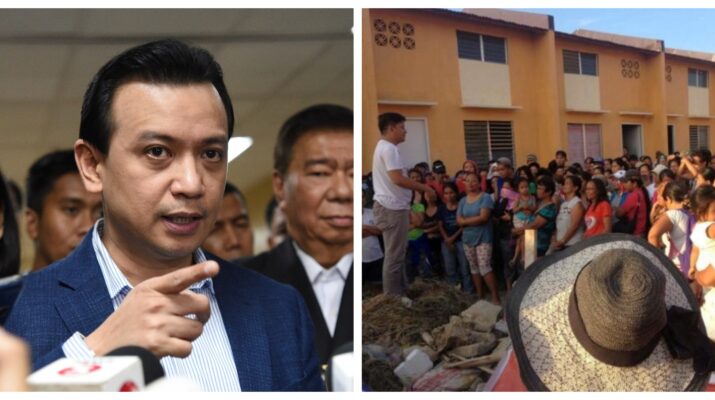They say paranoia leads one to behave in the most illogical ways. Judging by the actions of two lawmakers in the Philippine Congress, that assessment seems factual.
Senator Antonio Trillanes IV and Congressman Gary Alejano have been relentless in their pursuit of President Rodrigo Duterte since his election, brandishing him as a ‘communist’ and therefore a traitor to his country.
Both these lawmakers came from the infamous Magdalo group, a band of junior officers who staged coups in 2003 and 2007 against the presidency of Gloria Macapagal-Arroyo. For them to point the finger at another for being disloyal sounds like a classic example of the pot calling the kettle black.

Yet oblivious to the irony of their ways, the two lawmakers have repeatedly called for the ousting of the President – with Cong. Alejano filing a formal impeachment complaint against Duterte.
One of their biggest gripes appears to be when the Chief Executive defended the urban poor activist group, KADAMAY, as they occupied social housing units in Bulacan. Immediately, Sen. Trillanes made a dubious claim that the group is a “front organization for communists”. His accusations stem from the pro-poor character of the group, which in the Philippine context is enough to label you as a “communist” or at least a sympathizer.
The Senator went as far as to say that there were “communists” in Duterte’s administration who were “dictating policies” to him. Among the names he gave out were labour Secretary Silvestre Bello III and cabinet Secretary Jun Evasco.
While the two officials mentioned do have left-leaning backgrounds, that is not enough to accuse them of being part of the underground rebellion. Bello was also part of the Ramos (1992-8) and Arroyo (2001-4) administrations, yet those two former presidents have not been labelled as “Red sympathizers” by the Senator. What this tells us, however is the secretary’s competence as he is sought by different heads-of-state.
Other names mentioned by Trillanes included Social Welfare Secretary Judy Taguiwalo, Anti-Poverty Convener Liza Maza and Agrarian Reform Secretary Rafael Mariano. All three individuals were endorsed by the National Democratic Front, which means they are undeniably leftists. However, as stated previously leaning towards a left-wing ideology does not equate to being a “communist”.
Secretary Taguiwalo was an acclaimed professor at the University of the Philippines before assuming her new office, while Liza Maza was a women’s rights activist for the party-list group Gabriela. Secretary ‘Paeng’ Mariano was part of the peasants’ movement KMP and was also a former congressman before becoming Secretary for Agrarian Reform.

None of those credentials indicate them being sympathetic with the underground rebellion, but rather shows their solidarity with the most marginalized in society. At a time when inequality in the Philippines remains among the highest in the world, their passion to serve the poor will be greatly appreciated.
Perhaps this is what Trillanes and Alejano are alluding to? They misconstrue the individual’s activist background as evidence of their collusion with the “communist” movement. This is reminiscent to the ‘Red Scare’ era of post-war United States, where a Senator – who was also paranoid of apparent “communists” in the US government – made equivocal statements against his political opponents, branding them as “communist sympathizers”.
Those accusations by Senator Joseph McCarthy were mostly false, he was exploiting the Cold War-era paranoia of many Americans to smear his rivals. And what easier way to pull his competitors down than to call them “communists”, despite the lack of any evidence to prove it?
Now it seems that we are experiencing our own wave of “Red Scare”. With the declining name recognition of Trillanes and the relative obscurity of Cong. Alejano it makes sense for them to resort to such tactic. Whether it would prove effective or not for their respective political careers remains to be seen, but one thing that is certain is that any reward they reap will be at the cost of political unity and the ability to forward a pro-poor policy agenda.

